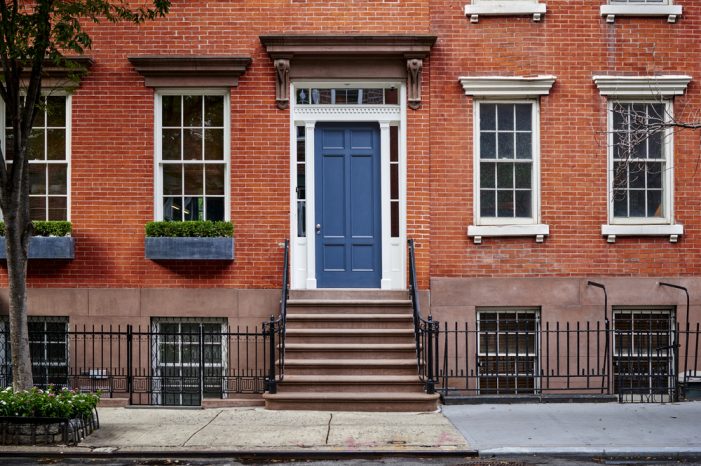By Brian Figeroux, Esq.
Buying a home in New York City is a milestone achievement, but it can also be one of the most complex real estate transactions in the country. The city’s unique real estate market, combined with its competitive demand and high costs, requires prospective buyers to be well-prepared and well-informed. This article provides an in-depth analysis of the key factors to consider when purchasing a home in New York City, from understanding the types of properties to navigating legal and financial processes.
- Understanding the New York City Real Estate Market
New York City’s real estate market is unlike any other in the country. It is a seller’s market, meaning demand for homes often outstrips supply, driving up prices. Property values in NYC are among the highest in the U.S., with median home prices in Manhattan, Brooklyn, and Queens continuing to rise due to limited inventory and strong demand.
- Market Trends: Property prices vary across the boroughs. Manhattan tends to be the most expensive, while areas in Queens, the Bronx, and Staten Island offer more affordable options.
- Seasonal Considerations: Spring and summer tend to be the busiest seasons for home buying, often leading to higher competition and faster sales.
- Types of Properties in New York City
Before buying a home, it’s important to understand the different types of residential properties in NYC:
- Co-Ops (Cooperatives): Co-ops are the most common form of housing in NYC. Buyers purchase shares in a building rather than owning the unit itself. Co-ops often require board approval, which includes reviewing the buyer’s financials and lifestyle.
- Condos (Condominiums): Condos provide direct ownership of the unit, offering greater flexibility than co-ops. Condos typically have higher purchase prices and monthly maintenance costs.
- Townhouses: These multi-level homes offer more space and privacy but come with higher prices and maintenance responsibilities.
- Single-Family Homes: Rare in Manhattan, single-family homes are more common in outer boroughs like Queens and Staten Island.
- Financial Preparations Before Buying
Purchasing a home in NYC requires strong financial preparation:
- Determine Your Budget: Assess your income, credit score, savings, and debt to understand what you can afford. Keep in mind that NYC’s high cost of living adds to the expense of home ownership.
- Mortgage Pre-Approval: Work with a lender to secure a pre-approval letter, which demonstrates your ability to purchase a home and makes your offer more attractive to sellers.
- Closing Costs: In addition to the purchase price, buyers must account for closing costs, which can include attorney fees, mortgage taxes, title insurance, and co-op or condo fees. In NYC, closing costs can range from 2% to 5% of the purchase price.
- Down Payment: For co-ops, buyers may be required to put down 20-25% of the purchase price. Condos typically allow for a lower down payment, but requirements can vary.
- The Role of Real Estate Attorneys
Hiring a skilled real estate attorney is critical when buying a home in New York City. Unlike in other states, legal representation is mandatory in NYC real estate transactions. Attorneys play a key role in:
- Reviewing Contracts: Attorneys carefully review the purchase agreement to ensure fair terms and compliance with New York laws.
- Conducting Due Diligence: For co-ops or condos, attorneys review board minutes, financial statements, and other documents to assess the building’s health.
- Title Search: Attorneys perform a title search to ensure there are no legal issues, such as liens, attached to the property.
- Coordinating Closing: Your attorney will guide you through the final steps of the transaction, including closing costs and documentation.
- Navigating the Offer and Negotiation Process
Once you find a property you wish to buy, making an offer requires strategy:
- Competitive Offers: Given NYC’s competitive market, you may need to make an offer above the asking price, particularly in sought-after neighborhoods.
- Contingencies: Offers often include contingencies, such as financing approval, home inspection, or appraisal. These protect the buyer but can sometimes make an offer less appealing in a competitive market.
- Negotiation: Real estate agents and attorneys work together to help you negotiate favorable terms, including the purchase price, repairs, or additional concessions.
- Understanding Co-Op and Condo Boards
If you’re purchasing a co-op or condo, you’ll need to interact with the building’s board:
- Board Approval: Co-op boards have the authority to approve or reject buyers. They evaluate factors such as your financial stability, employment, and personal background.
- Bylaws and Rules: Both co-ops and condos have bylaws outlining building rules, fees, and responsibilities. Buyers should carefully review these to avoid surprises.
- Closing on Your Home
The closing process is the final step in buying a home:
- Final Walkthrough: Before closing, buyers inspect the property to ensure it is in the agreed-upon condition.
- Closing Meeting: Buyers, attorneys, sellers, and agents meet to sign final documents and complete the transaction. At this point, funds are transferred, and ownership is officially recorded.
- Keys and Possession: Once all documents are signed and payments are made, the buyer receives the keys and takes possession of the property.
Conclusion
Buying a home in New York City is both an exciting and challenging endeavor. From understanding property types and financial preparations to navigating co-op boards and legal requirements, the process can be complex. However, with careful planning and the guidance of experienced professionals—like real estate attorneys—buyers can protect their interests and secure a smooth transaction.
Working with a trusted law firm like Figeroux & Associates can make all the difference. Their team of experienced attorneys ensures your rights are protected at every stage, from reviewing contracts to closing the deal.

